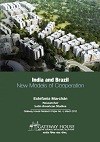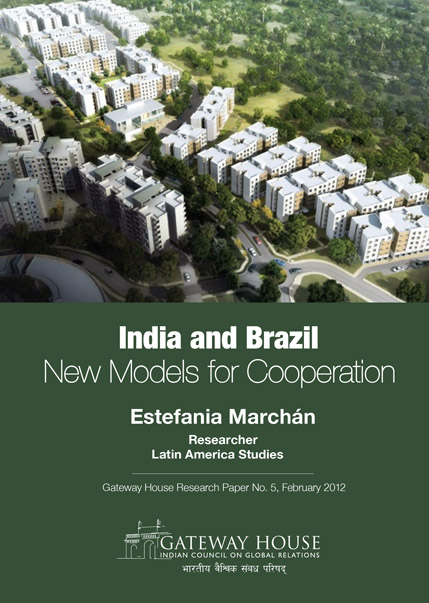Introduction
We no longer debate the notion that the world order is being reshaped by nations long considered peripheral. Partnerships that were once deemed weak and fruitless are gaining renewed traction. Developing nations are turning increasingly towards each other in search of new models, new investments and creative solutions to their developmental challenges. Their engagements, characterized as South-South cooperation, are driven mainly by India, Brazil and China – the giants of the Global South. Each country has prioritized South-South cooperation, investing zealously throughout the developing world. But will today‘s South-South cooperation yield the growth and equity that old models and engagement patterns failed to deliver?
This paper examines the possibilities of India and Brazil to fulfill their potential for equitable development – where one country‘s homegrown and well-honed strategies can be a welcome aid in the other; and how together, they can influence the development of a vast swathe of the underdeveloped and still-developing world. Acknowledging local conditions, this paper does not aim to fully analyze each area related to poverty reduction, food security and healthcare. Rather, it seeks to highlight lessons that can be considered in a partnership for cooperation and knowledge-sharing that provides broad social benefits. This paper will analyze common characteristics and challenges that make India and Brazil appropriate partners in development.
Related reading:
1. You can read a précis of this paper here.
2. India-Brazil: An African collaboration
Gateway House published this Op-Ed, by Estefanía Marchán, on 21 October, 2011. She argues that India and Brazil’s increasing engagement in Africa is a clear sign that both countries are embracing their new roles as global diplomats.
3. For a new highway, from Rio to Delhi
The Hindu, a leading newspaper in India, republished this Op-Ed, by Estefanía Marchán, on 14 March, 2012. She identifies ways for Brazil and India to benefit from each other’s experience for an inclusive development agenda.
You can download the PDF version of this paper, here.
Estefanía Marchán is Researcher, Latin American Studies, Gateway House.
This paper was exclusively written for Gateway House: Indian Council on Global Relations. You can read more exclusive content here.
For interview requests with the author, or for permission to republish, please contact outreach@gatewayhouse.in.
©Copyright 2012 Gateway House: Indian Council on Global Relations. All rights reserved. Any unauthorized copying or reproduction is strictly prohibited.



